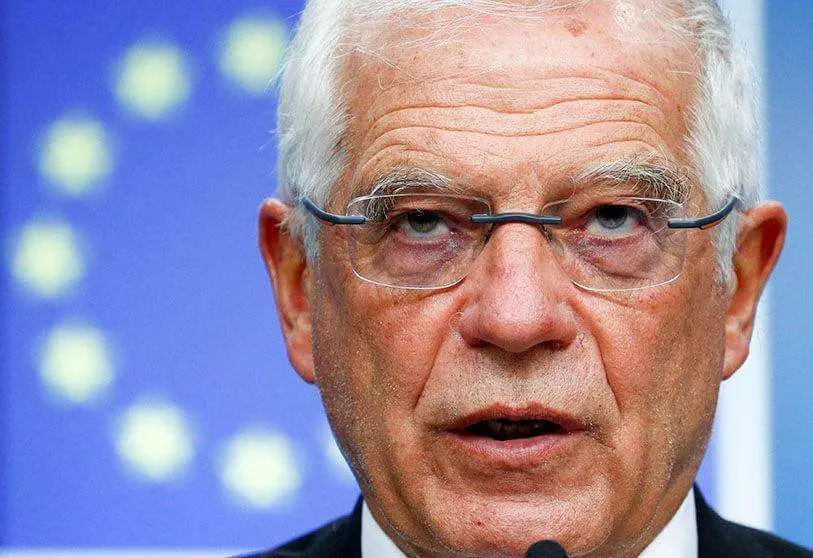Borrell says a court ruling is needed to declare the Revolutionary Guards a terrorist organisation

The European Union's High Representative for Foreign Affairs, Josep Borrell, declared on Monday that it is necessary for the judiciary of a member country of the European Union to classify Iran's Revolutionary Guard as a terrorist organisation in order to be able to consider it as such at EU level. "There are many interesting opinions on this, but it is something that cannot be decided without a decision by a court first," Borrell told reporters on his arrival at a meeting of EU foreign ministers.
At the meeting, ministers are expected to back new sanctions against around 30 Iranians for their involvement in the country's human rights repression. Borrell said they would consider new restrictive measures on a personal level "in accordance with the legal framework on human rights" but warned that in order to consider the Islamic Revolutionary Guard as a terrorist organisation "there must first be a conviction in a court of a Member State".
German Foreign Minister Annalena Baerbock said on her arrival that the Iranian regime and the Revolutionary Guards "terrorise their own population" and called on the EU to "clarify" the legal issues in order to designate the Revolutionary Guards as a terrorist organisation. Her French counterpart, Catherine Colonna, said that they will sanction "a certain number of those responsible for the repression", but made it clear that such restrictive measures "will not affect the Iranian people or the Iranian economy".
At the same time, Colonna called for "reflection on the response to the policy of state hostages" in Iran, and the Belgian minister, Hadja Lahbib, agreed on the importance of "the EU-27 reflecting on a firm and clear message to the Iranian authorities". She warned that "more and more European citizens are being detained in Iranian prisons", which she considered "unacceptable". "We must obtain the release of our fellow citizens unjustly detained," he said, referring to Olivier Vandecasteele, a Belgian aid worker arrested in February last year by Iran and recently sentenced to 40 years' imprisonment and 74 lashes.
After the European Parliament last week called in a resolution for the EU to consider the Revolutionary Guards a terrorist organisation, Iranian Foreign Minister Hosein Amir Abdolahian said on Sunday that the Iranian parliament plans to put members of the military of European countries on the terrorist list in response. In addition, the Iranian Intelligence Ministry also warned yesterday of the right to reciprocity in case the European Union carries out any act contrary to the national security of the Islamic Republic of Iran.
The new sanctions that Brussels plans to adopt today are a response to the repression of the demonstrations that began last September over the death of the young Kurdish woman Mahsa Amini, who died in police custody after being arrested for not wearing the Islamic headscarf properly. The Iranian authorities have responded with a heavy police crackdown that has resulted in almost 500 deaths and nearly 20,000 arrests, according to NGOs based outside Iran.
In addition, four protesters have been executed, one of them publicly, and at least 17 people have been sentenced to death by hanging. The protests have lost momentum considerably after the executions of the four demonstrators and in recent weeks there have been few demonstrations on the streets of the Persian country.
Since Amini's death, the EU has already imposed three rounds of targeted sanctions against Iranian officials, banning them from travelling to Iran and freezing any assets they may have in member states.








